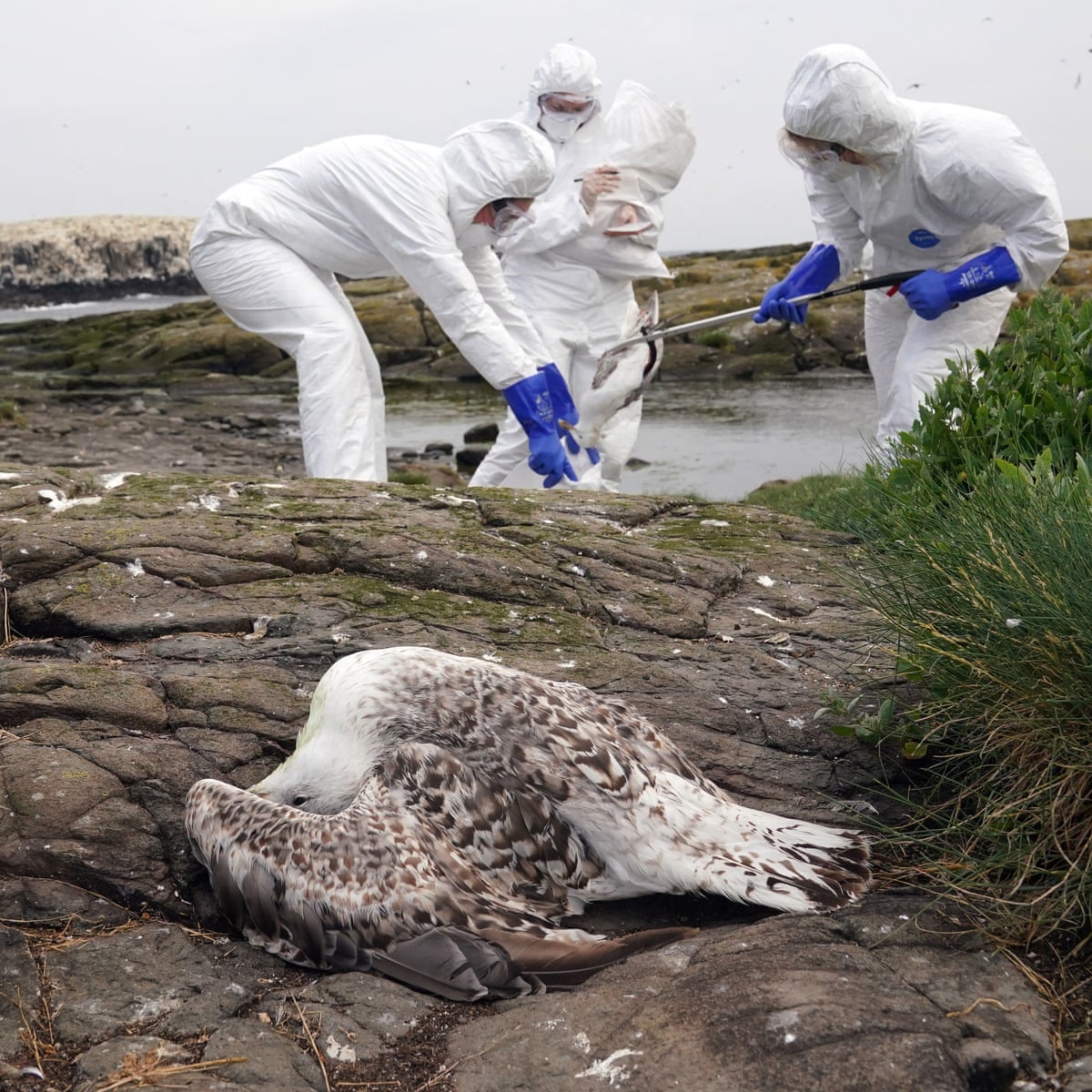22 August 2023 See all updates. WEB So far 78 UK bird species have tested positive for avian flu including most of our breeding seabirds. WEB Sun 26 Feb 2023 0434 EST British health officials are preparing plans to deploy lateral flow tests if signs emerge that..
22 August 2023 See all updates. WEB So far 78 UK bird species have tested positive for avian flu including most of our breeding seabirds. WEB Sun 26 Feb 2023 0434 EST British health officials are preparing plans to deploy lateral flow tests if signs emerge that..
**Bird Flu Outbreak Reaches Record High in England** The United Kingdom has experienced its largest-ever outbreak of bird flu, with over 330 cases confirmed since late October 2021. The highly pathogenic avian influenza (HPAI) strain has primarily affected wild birds, causing widespread deaths and raising concerns for poultry keepers and conservationists. Bird flu is a highly contagious infectious disease that affects birds, particularly chickens, turkeys, and ducks. The virus can be spread through direct contact with infected birds, their saliva, feces, or contaminated surfaces. In rare cases, it can also infect humans who have close contact with infected birds. The most serious strain of bird flu, HPAI, can cause severe respiratory symptoms and death in infected birds. Symptoms may include coughing, sneezing, difficulty breathing, and loss of appetite. Infected birds often show signs of neurological damage, such as tremors, circling, and head twisting. The outbreak has had a devastating impact on the UK's bird population, with numerous cases confirmed in wild birds such as swans, ducks, and geese. The government has implemented strict measures to contain the outbreak, including movement restrictions on poultry and mandatory testing for suspected cases. Bird keepers are urged to follow strict biosecurity measures to protect their flocks, including keeping poultry indoors, disinfecting equipment and vehicles, and isolating new birds. Members of the public are also advised to avoid touching dead wild birds and to report any suspected cases to authorities. The outbreak highlights the importance of early detection and response to avian influenza, as it can have serious consequences for both animal and human health. Public health authorities continue to monitor the situation and provide guidance to mitigate the risk of infection.
**Avian Flu Cases Surge in the UK** The UK is facing a new outbreak of highly pathogenic avian influenza (HPAI), commonly known as bird flu. **Latest Situation** * As of November 29, 2023, HPAI H5N1 has been detected in 28 found-dead wild birds in Scotland. * Wild bird cases since November 1, 2023 have been primarily found along coastal areas. * Bird flu restrictions have been eased across most of the UK, but remain in place in Scotland. **Estimated Deaths** Data released May 5, 2023, revealed that bird flu has killed more than twice the number of wild birds previously estimated in the UK. The updated number of deaths now exceeds 100,000. **Prevention Measures** To prevent the spread of bird flu, the following measures are being implemented: * Public health warnings urging people to avoid contact with wild birds. * Veterinary surveillance and testing of poultry flocks. * Movement restrictions on poultry and other captive birds in high-risk areas. * Biosecurity measures at farms and bird gatherings. **Advice to Poultry Owners** Poultry owners are advised to: * Maintain high levels of biosecurity on their premises. * Check flocks regularly for signs of illness. * Report any suspected cases to the authorities immediately. **Further Information** For more details on the latest HPAI situation in the UK, please refer to the following resources: * Defra (UK Department for Environment, Food and Rural Affairs): https://www.gov.uk/government/collections/avian-influenza-bird-flu * UK Health Security Agency (UKHSA): https://www.gov.uk/government/organisations/uk-health-security-agency
**Avian Flu Outbreak Affects Dairy Cows in the US** **April 3, 2024** An outbreak of avian influenza, also known as bird flu, is affecting dairy cows in the United States. The virus, which is caused by the influenza A virus, can also infect humans. Bird flu is respiratory virus that causes severe illness in birds, including pneumonia. In humans, bird flu can cause a range of symptoms, including fever, cough, sore throat, muscle aches, and fatigue. In severe cases, bird flu can lead to pneumonia, respiratory failure, and even death. The outbreak of bird flu in dairy cows began in January 2022. Since then, more than 82 million poultry in 48 states have been affected. The virus has also been detected in wild birds in all 50 states. The Centers for Disease Control and Prevention (CDC) is closely monitoring the outbreak of bird flu. The CDC recommends that people avoid contact with sick or dead birds, and that they thoroughly cook poultry and eggs before eating them. The CDC also recommends that people who have been exposed to bird flu be tested for the virus. There is no specific treatment for bird flu, but antiviral medications can help to reduce the severity of the illness. The outbreak of bird flu is a serious public health concern. The CDC urges people to take steps to protect themselves from the virus.


Comments